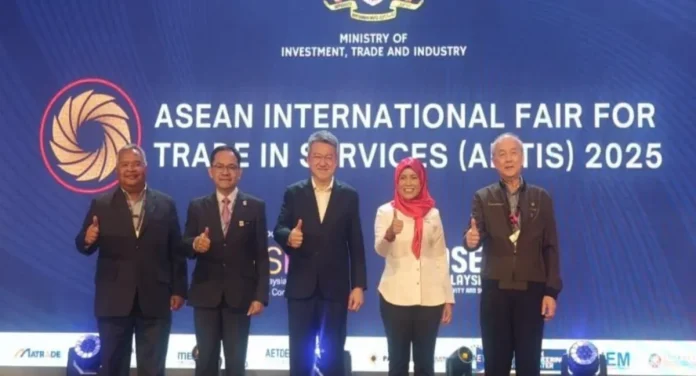KUALA LUMPUR: Malaysia has called on Asean countries to raise wages and job quality in the services sector as artificial intelligence (AI) advances and several member states run services-trade deficits.
Deputy Investment, Trade and Industry Minister Liew Chin Tong cited economist Dani Rodrik’s article in Project Syndicate who argued that the global economy needs to pay more attention to raising standards within services jobs and not just focusing on manufacturing or high-tech sectors.
“Because services very often hire the most number of people in an economy. It is important to improve the conditions of services jobs, improve the skills, improve the intellectual content and also to ensure that services jobs will pay well and they will not be inflated by the advancements of AI and technology,” he said at Asean International Fair for Trade in Services 2025 today.
While AI and technology will advance, Liew said, they will aid and create better services jobs which pay better and give more meaning to workers.
“So that we can not just deal with our services deficit, but create something interesting for our workers, for our businesses and also for Asean and for the world.”
In the piece, Rodrik argued that three of the greatest economic challenges facing the world – climate change, erosion of the middle class and persistent global poverty – require new thinking and approaches.
“These challenges are intertwined and demand integrated solutions rather than isolated policy fixes,” he said.
He suggested that many solutions already ex
ist at the local level but are under‐recognised or under‐scaled.
Rodrik emphasised that the services sector matters a lot in this context as it is where most people work, yet it often receives less policy attention compared to manufacturing or high-tech sectors.
He argued for upgrading services jobs: better skills, higher wages, and better quality of work, so that the services sector can be a driver of inclusive growth rather than a zone of precarious employment.
Rodrik warned that technological change and AI should not
simply displace workers or lead to a “race to the bottom” in services jobs; instead, the gains from technology should be shared and used to raise job quality.
He called for policy innovation: local innovations in service delivery, regulatory design, business models should be identified and scaled up so that these “neglected solutions” become mainstream.
He linked services-job quality with broader issues like inequality, middle-class security and the stability of democratic institutions – if large swathes of people are stuck in low-quality, low-pay services jobs, then the middle class erodes, which creates political and economic risks.
Liew said the two-day inaugural Asean International Fair for Trade in Services 2025 serves as a collaborative platform that reflects Asean’s shared commitment to shaping the future of the Asean Economic Community.
He added that the event aligns closely with Malaysia’s priorities as Asean Chair in 2025.
The minister stressed that strengthening trade in services is essential for Asean’s next phase of economic growth and regional integration, particularly through talent development, technology adoption, regulatory reform, and industrial collaboration.
“The themes of innovation, inclusiveness and sustainability resonate strongly across this programme,” he said.
Liew noted that adopting advanced technologies such as AI and blockchain, improving Asean-wide standards and strengthening mutual recognition agreements would help elevate the region’s services sector.








